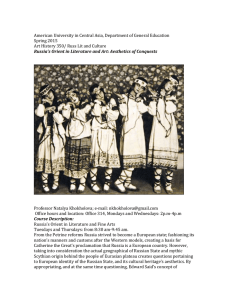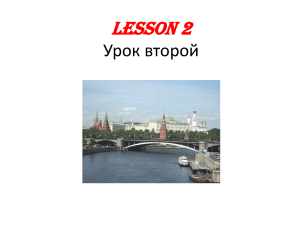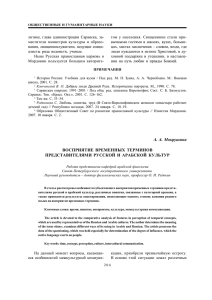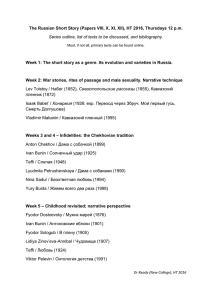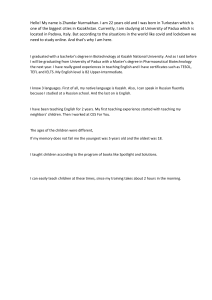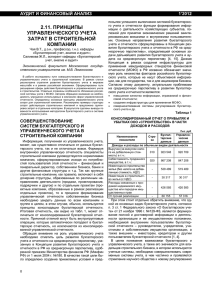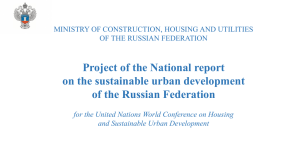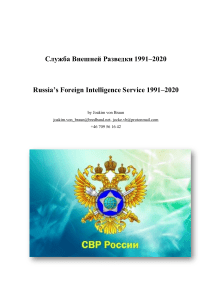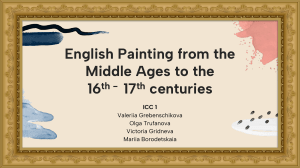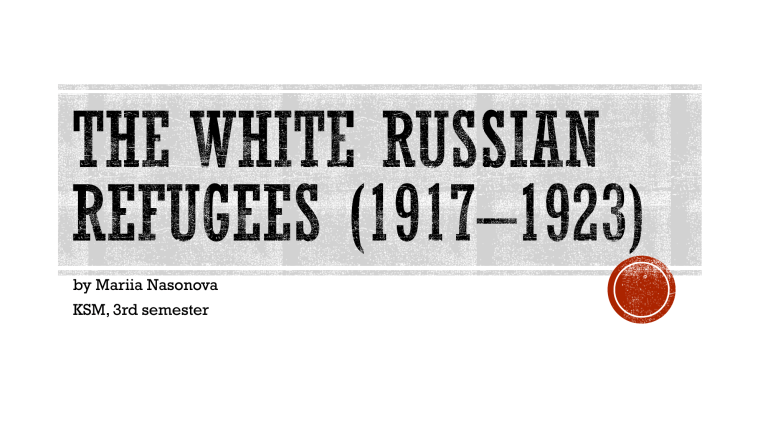
by Mariia Nasonova KSM, 3rd semester The Russian emigration is composed of groups of people ranking from the Imperial family and Court officials to those in the professions, men of science and artists of worldwide reputation, workers, farmers, and artisans. CAUSES OF THE POSTWAR REFUGEE MOVEMENT the overthrow of the czarist regime and the establishment of Bolshevist rule in Russia in 1918; the collapse of the Russian White A white Russian émigré was a Russian subject who emigrated from the territory of former Imperial Russia in the wake of the Armies in European Russia in 1919- Russian Revolution (1917) and Russian Civil War (1917–1923), and 20 and in Siberia in 1920-22; who was in opposition to the revolutionary (Red Communist) Russian the famine of 1921. political climate. Many white Russian émigrés participated in the White movement or supported it, although the term is often broadly applied to anyone who may have left the country due to the change in regimes. The refugees belonged for the most part to the highly educated and cultured professional and intellectual classes of former Russia whose motive was not only political and patriotic but also one of personal security, because under Bolshevist terror they were condemned to slaughter and extermination. Nabokov was an emigrant of the 2nd Wave, meaning he was among the Russians that left Russia during the Civil War after the revolution. Nabokov’s family was forced to flee to Crimea and sought exile in Western Europe. After completing his bachelor’s degree at Cambridge University and spending some time in Germany, Nabokov eventually settled in America where he was to become a professor of literature at Cornell University. Nabokov originally started writing in Russian, but his fiction was banned in the Soviet Union. He also wrote in English to reach local American readers, his most famous novel being Lolita. He even translated some of his own work in English. Nabokov has made a significant impact on Russian and English literature for some of the ideas he proposes as a result of his experience as an emigrant. Despite enjoying the intellectual freedom of America at the time, Nabokov always remained very close to the Russian literary tradition, including many references to the greats of Dostoevsky, Pushkin and Tolstoy in his writing. Moreover, as result of his dual-identity, Nabokov was always interested in cultural multiplicity and the problems of cross-cultural identity. It is noticeable, for example, in his essays and writings, that Nabokov tried to defy stereotypes by creating culturally complex characters. Feodor Ivanovich Chaliapin was a Russian opera singer. Possessing a deep and expressive bass voice, he enjoyed an important international career at major opera houses. Privately, Chaliapin's personal affairs were in a state of disarray as a consequence of the Russian Revolution of 1917. The harsh realities of everyday life under the new regime, and the unstable climate caused him to remain perpetually outside Russia after 1921. He still maintained, however, that he was not anti-Soviet. Chaliapin initially moved to Finland and later lived in France. Chaliapin's attachment to Paris did not prevent him from pursuing an international operatic and concert career in England, the United States, and further afield. In May 1931 he appeared in the Russian Season directed by Sir Thomas Beecham at London's Lyceum Theatre. His most famous part was the title role of Boris Godunov. Sir Paul Gavrilovitch Vinogradoff was a Russian and British historian and medievalist. Vinogradoff became professor of history at the University of Moscow, but his zeal for the spread of education brought him into conflict with the authorities, and consequently he was obliged to leave Russia. Having settled in England, Vinogradoff brought a powerful and original mind to bear upon the social and economic conditions of early England, a subject which he had already begun to study in Moscow. In 1903 he was elected to the position of Corpus Professor of Jurisprudence at the University of Oxford, and held this position until he died in 1925. He was elected a Fellow of the British Academy in 1905. He received honorary degrees from the principal universities, was made a member of several foreign academies. Sources: Schaufuss, Tatiana. “The White Russian Refugees.” The Annals of the American Academy of Political and Social Science 203 (1939): 45-54. Web. URL: https://www.jstor.org/stable/pdf/1021884.pdf?refreqid=excelsior%3A366fe33fea99c7c2f8bc9c536b6ae448. Accessed: 27 Oct. 2021. Kasnina, Olga. “Русская эмигрантская община в Англии: 1920-1930 гг. [The Russian émigré community in England: 1920-1930].” Русскiй Мiръ [Russian World] 1 http://ricolor.org/europe/britania/vr/rus/1/. Accessed: 27 Oct. 2021. (2000): 18-32. Web. URL: Thank you for your attention!
